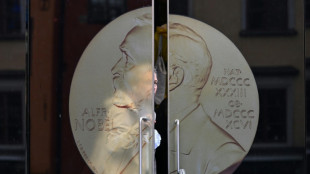
-
 Deepfake political scam ads surge on Meta platforms, watchdog says
Deepfake political scam ads surge on Meta platforms, watchdog says
-
Yankees, Guardians and Padres stay alive in baseball playoffs

-
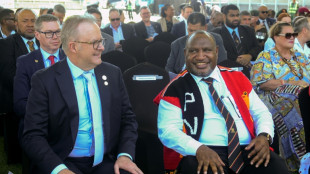 Papua New Guinea approves contentious defence treaty with Australia: officials
Papua New Guinea approves contentious defence treaty with Australia: officials
-
Rescuers search for 59 people trapped under collapsed Indonesian school
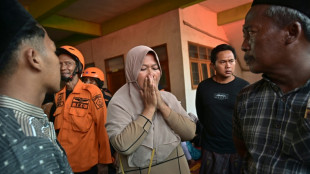
-
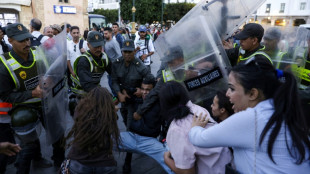 Two killed as violence flares in Morocco protests
Two killed as violence flares in Morocco protests
-
Rising wildfires spur comeback for Canadian water bomber
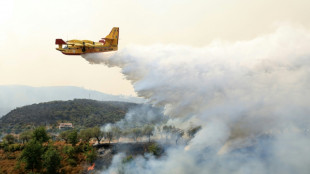
-
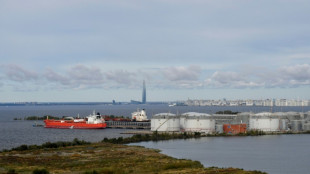 G7 ministers to target those increasing Russia oil purchases
G7 ministers to target those increasing Russia oil purchases
-
Australia 'mushroom murderer' Erin Patterson to appeal conviction
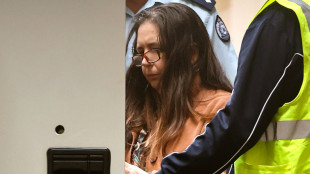
-
 Guardians, Padres stay alive in first round of baseball playoffs
Guardians, Padres stay alive in first round of baseball playoffs
-
Barca must defend better to reach PSG level: Flick
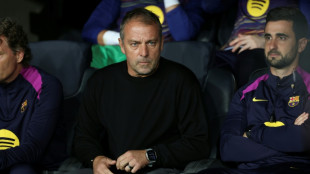
-
 Fitzpatrick blasts 'offensive' PGA chief after Ryder Cup row
Fitzpatrick blasts 'offensive' PGA chief after Ryder Cup row
-
'Dangerous' Odegaard has freedom to shine for Arsenal, says Arteta

-
 PSG stun Barcelona in Champions League, Man City held by Monaco
PSG stun Barcelona in Champions League, Man City held by Monaco
-
Israeli warships intercept Gaza aid flotilla with Greta onboard
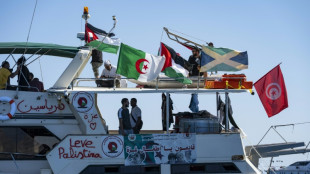
-
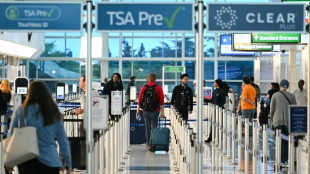 Air traffic controllers warn of US shutdown strain
Air traffic controllers warn of US shutdown strain
-
'Conservation giant': World reacts to Jane Goodall's death
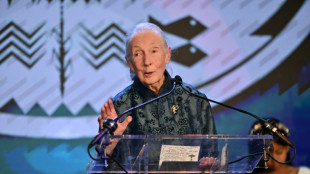
-
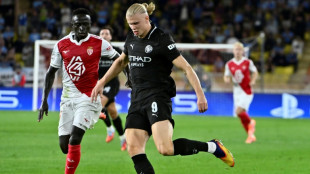 Haaland scores twice but Man City denied by Monaco in Champions League
Haaland scores twice but Man City denied by Monaco in Champions League
-
Guirassy helps Dortmund sink Bilbao in Champions League

-
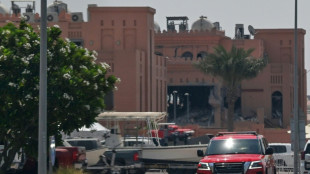 Trump offers security guarantees to Qatar after Israel strikes
Trump offers security guarantees to Qatar after Israel strikes
-
Ramos snatches Champions League holders PSG late win at Barca

-
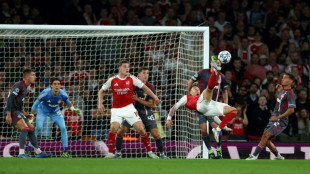 Martinelli extends Arsenal's perfect start in Champions League
Martinelli extends Arsenal's perfect start in Champions League
-
Hojlund and De Bruyne combine to push Napoli past Sporting

-
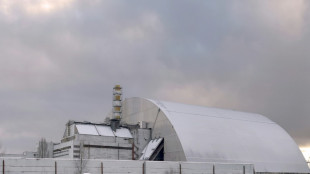 Russia cut power to defunct Chernobyl nuclear plant, Ukraine says
Russia cut power to defunct Chernobyl nuclear plant, Ukraine says
-
First woman coach breaks barriers in Brazil basketball
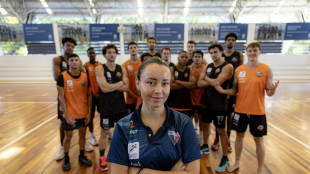
-
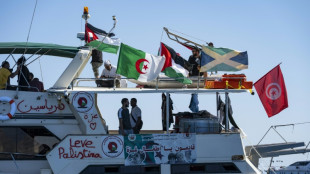 Gaza aid flotilla says Israeli warships 'intercepted' boats
Gaza aid flotilla says Israeli warships 'intercepted' boats
-
Vinicius, Rodrygo back in Ancelotti's Brazil squad

-
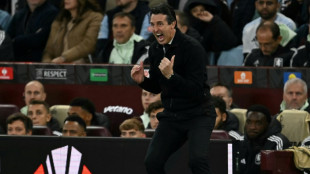 Emery relishes Villa's 'special' Rotterdam visit
Emery relishes Villa's 'special' Rotterdam visit
-
Colombia gives chunk of druglord Escobar's ranch to conflict victims
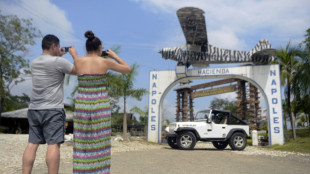
-
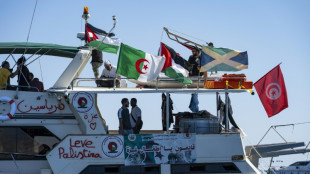 Gaza aid flotilla says Israeli warships intercepting boats
Gaza aid flotilla says Israeli warships intercepting boats
-
Trump says to push China's Xi on soybeans as US farmers struggle
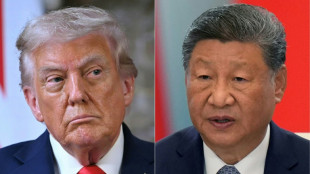
-
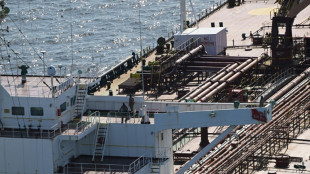 French navy boards Russia 'shadow fleet' ship, arrests two
French navy boards Russia 'shadow fleet' ship, arrests two
-
New probe opens into Hunter S. Thompson's 2005 death

-
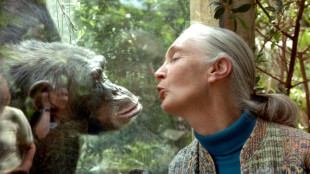 Renowned British chimpanzee expert Jane Goodall dies at 91
Renowned British chimpanzee expert Jane Goodall dies at 91
-
Gordon penalties lead Newcastle to big win over Union SG

-
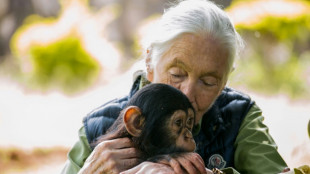 Jane Goodall: crusader for chimpanzees and the planet
Jane Goodall: crusader for chimpanzees and the planet
-
Thuram set to miss France's World Cup qualifiers with hamstring knock

-
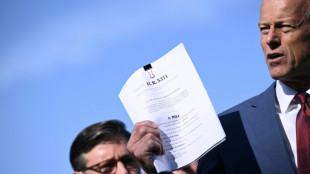 W.House says firings 'imminent' as plan to reopen govt collapses
W.House says firings 'imminent' as plan to reopen govt collapses
-
Jane Fonda relaunches Cold War-era Hollywood free speech movement
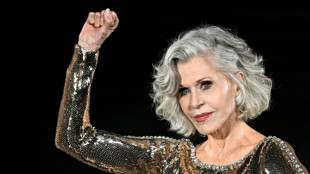
-
 Hurricane Imelda bound for Bermuda as a Cat 2 storm
Hurricane Imelda bound for Bermuda as a Cat 2 storm
-
French navy boards Russia 'shadow fleet' ship: AFP
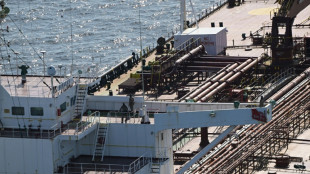
-
 Canada blocks theme park from sending whales to China
Canada blocks theme park from sending whales to China
-
Deadly family drama shuts Oktoberfest for a day
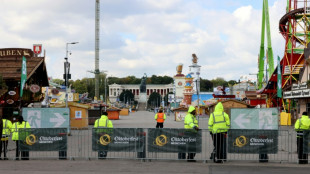
-
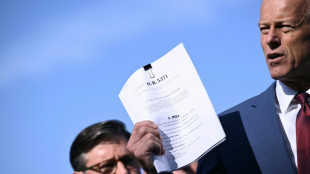 Senate rejects plan to end US government shutdown
Senate rejects plan to end US government shutdown
-
Troll-in-chief Trump mocks Democrats over shutdown
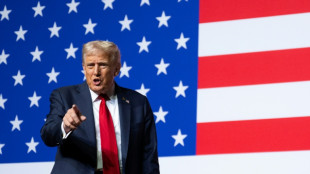
-
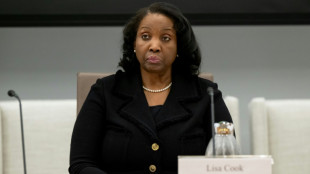 Supreme Court blocks Trump from immediately firing Fed Gov. Cook
Supreme Court blocks Trump from immediately firing Fed Gov. Cook
-
Israel issues 'last' warning for Gazans to flee main city
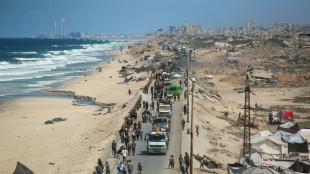
-
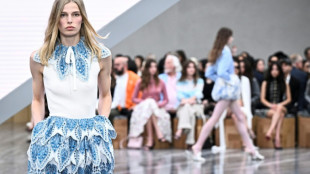 Jonathan Anderson brings new twist to Dior women with Paris debut
Jonathan Anderson brings new twist to Dior women with Paris debut
-
India 'welcome' to collect trophy from me, says Asian cricket boss
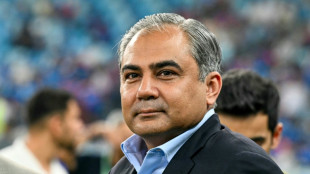
-
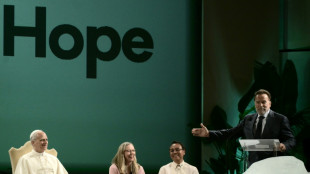 Schwarzenegger's 'action hero' pope says don't give up on climate change
Schwarzenegger's 'action hero' pope says don't give up on climate change
-
'I'm breathing again': Afghans relieved after internet restored
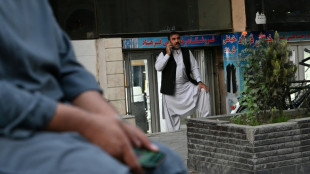

New metro cuts through Saudi social divisions
For decades, civil servant Zayed al-Ghamdi's social circles in Saudi Arabia were more than predictable, bound by routine and kinship in a country where societal divisions have rarely been challenged. Then came the metro.
A decade after breaking ground, Riyadh's gleaming new metro opened in December, offering the capital's eight million residents an alternative to roads chronically clogged by its two million cars.
A quicker commute is not the only difference: for the first time, the wealthy are sharing journeys with the less well off, and Saudi nationals are mixing with the large expat population, from white-collar workers to labourers.
"For 40 years, I was confined to my car or restaurants with my father and brothers, then with my wife and children," Ghamdi, a 42-year-old civil servant working in downtown Riyadh, told AFP.
"I didn't mix or talk to anyone except those I knew or who resembled me.
"Now, things have changed. You feel that society, with all its classes, is in one place," he added while speeding along the blue line, which connects working-class areas in the south with the downtown business district and affluent northern neighbourhoods.
With its eye-watering oil riches, intricate tribal networks and large numbers of foreign workers, Saudi society has long been divided by rigid class structures.
But on the metro, those divisions are more porous.
Metro carriages are frequently crowded with labourers, university students, government employees and business executives wearing expensive suits.
"I can now discuss general topics with strangers and even get to know new things and cultures up close," said 56-year-old engineer Nasser Al-Qahtani, pointing to a young Saudi holding a skateboard.
- 'Family and friends only' -
While the metro has done little to clear Riyadh's perennially gridlocked streets, its opening has been "a major social and psychological event", said sociologist Mohammed Al-Hamza.
"The metro has shifted the mindset of Saudi society. It has made people come closer together," he said.
"The culture in Saudi Arabia is one of family and friends only, and there is reluctance to get to know new people."
Along with chipping away at class divisions, the system is saving commuters time and money, to the delight of many.
"I used to get to work in over an hour and a half, exhausted and stressed due to traffic," said Ghamdi, adding that he had hardly used his prized SUV for months.
"Now, I arrive relaxed and without stress," he added.
Prices range from just four riyals ($1) for a limited one-day pass to 140 riyals for a month.
As in other countries in the Middle East and beyond, the metro offers family carriages reserved for women, children and couples.
They afford women a safe and socially acceptable way to use the network to travel to work or study.
For those willing to pay an extra 10 riyals per day, first-class compartments also offer a reprieve from the busy single-male carriages.
For law student Hadeel Waleed, 20, the metro has been a game-changer, cutting her trip from the southern suburbs to Princess Nourah University from three to four hours to one hour or less.
"Now I arrive home with energy for my family and studying," she told AFP.
- 'No one expected this usage' -
The project is one of many major infrastructure initiatives under "Vision 2030" -- the reform programme overseen by the kingdom's de facto ruler, Crown Prince Mohammed bin Salman.
With six lines spanning about 176 kilometres (109 miles) of track, the network serves 85 stations, including stops at all terminals of Riyadh international airport.
There had been fears among city officials that the huge project could prove a white elephant, with few Saudis deigning to use it.
A bus network developed by the city struggled to gain traction as Saudis remained committed to their cars, especially during the hot summer months when temperatures hit 50 degrees Celsius (122 degrees Fahrenheit).
"Honestly, for 10 years, the question was: 'Who will use the metro?'" a senior official who helps operate the system told AFP on condition of anonymity.
"No one ever expected the current level of usage or even the financial returns," he added.
The Royal Commission for Riyadh did not respond to AFP's enquiries about daily ridership but the official suggested the figure was likely in the tens of thousands if not more.
Authorities are already hoping to expand the network, with a seventh line under development linking Riyadh to several new projects on the capital's outskirts.
For Muneer, a 28-year-old government employee, the metro is a welcome addition to a city undergoing rapid change.
"It makes life easier," he said.
U.Maertens--VB


